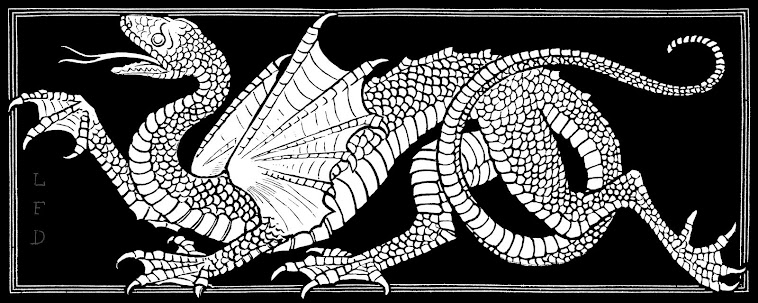Character Abilities
Gary explains what each of the ability scores really means, plus an extra paragraph about exceptional strength. Each ability score, much like hit points, is an abstraction of different things that would be difficult to quantify and would complicate things a lot if dealt with separately. Let's hit what ability scores really mean first:
Strength: physical power, endurance, stamina
Intelligence: mnemonic, reasoning and learning ability, plus book learning
Wisdom: willpower, judgment, wile, enlightenment and intuitiveness
Dexterity: hand-eye coordination, agility, reflex speed, precision, balance and running speed
Constitution: physique, health, resistance (I'm not sure what that means, really) and fitness
Charisma: physical appearance, persuasiveness and personal magnetism
I'll certainly be using Gary's summations the next time I try to explain ability scores!
Gary also discusses real-world correspondences with Intelligence and Strength. He states that Intelligence scores are roughly analogous to IQ scores (presumably multiplied by 10) and that someone with a Strength score of 18 can lift his weight (or 180 pounds, whichever is heavier) above his head.
Gary goes on to state that no human/humanoid (and, presumably, demi-human) can lift more than twice its body weight above its head. He then lays out how many additional pounds characters with percentage points above 18 can lift above their heads: one pound for each of the first fifty points, four pounds for the next forty and eight for the last ten. Added all together, the most strength that a character could begin play with, it seems, is enough to lift their body weight plus 290 pounds or twice their body weight, whichever is greater.
Character Races
Gary writes that while players should get to control their characters and determine their personalities, alignment will definitely be a factor they use in this task, and racial characteristics can also be a factor. He goes on to describe the general temperaments of dwarves, elves, gnomes, half-elves, halflings and half-orcs. Each conforms to what, thirty-some years later, is pretty much the standard treatment of these races, difficult to get away from even if you try. Dwarves are "dour and taciturn," half-orcs "are boors," etc. I think the only information that was really new to me was the idea that elves are fascinated by magic to the degree that "if they have a weakness it lies in this desire."


No comments:
Post a Comment